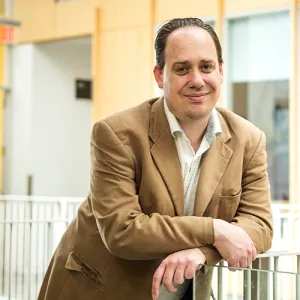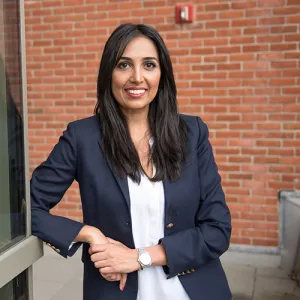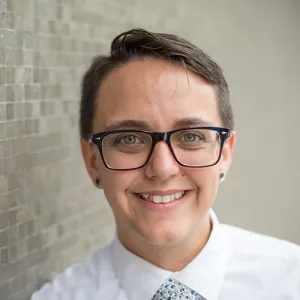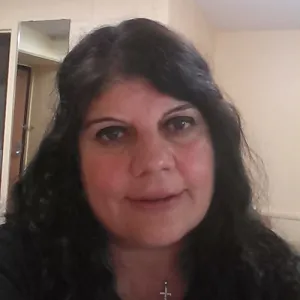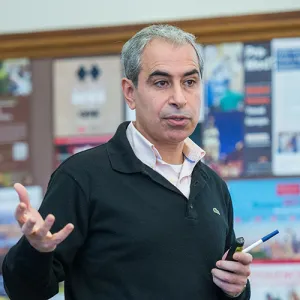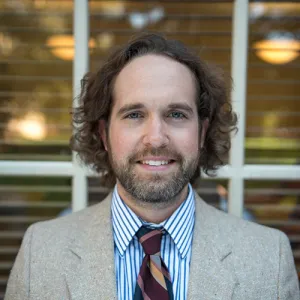
Middle East Studies
The major in Middle East studies provides students with the opportunity to deeply explore this region’s historical, political, social and cultural complexity. Broadly conceived, this geographical region stretches from North Africa to southwest and central Asia.
There are two minor tracks. A minor in Middle East studies provides an opportunity to study the region in an interdisciplinary fashion, with attention to key fields of knowledge. The minor in Arabic is designed for students wishing to achieve proficiency in modern Arabic.
An Interdisciplinary Field of Inquiry
Department Updates
Mary-Kate Wilson ’25: Medalist at Arabic Debate Championship
Mary-Kate Wilson ’25, a student of Arabic, attended the U.S. Universities Arabic Debate Championship at Stanford in October, and came away with a medal. Read about Mary-Kate’s achievement.
Requirements & Courses
Goals for Majors in Middle East Studies
The Program in Middle East Studies expects students to graduate with an understanding of the histories, cultures, politics, economics and languages that define the lived experiences of the peoples of the Middle East from the emergence of Islam (7th century CE) to the present. This includes equipping students with the knowledge and skills to:
- Frame questions and situate core texts and ideas in their appropriate intellectual, social, material and cultural contexts.
- Analyze and critique texts, ideas and materials produced in or pertaining to the Middle East from the rise of Islam to the present.
- Demonstrate knowledge of the diversity of Middle Eastern experiences through time and space, including an understanding of the interactions between the Middle East and other cultures, peoples, empires, economies and states.
- Situate the Middle East in global flows of ideas, material cultures, technologies, and political, economic and social forms.
- Understand how such global flows have shaped the Middle East and how the Middle East has influenced global movements of people, ideas and material forms across time and space.
- Think critically, speak and write critically about the ways in which the interdisciplinary field of Middle East studies contributes to, broadens and challenges important theoretical, methodological, analytic and conceptual approaches applied to the study of the Middle East in the humanities and social sciences.
- Apply knowledge of the Middle East to contemporary issues as informed and engaged citizens.
- Attain beginning competency in a Middle Eastern language.
Middle East Studies Major
Requirements
Ten courses plus MES 100 (43 credits)
- Basis: MES 100 (1 credit)
- Language (18 credits): Two years of language study in Modern Standard Arabic, Hebrew, Farsi, Turkish or another approved Middle Eastern language. Please refer to Additional Guidelines for further information on language requirements.
- Focus (12 credits): Three courses in an area of focus, which may be religion, history, politics, cultures (literature, film, music, art) of the Middle East, or may explore an interdisciplinary topic such as gender in the Middle East, ethno-religious diversity of the region, etc. Students design an area of focus in consultation with an adviser.
- Electives (12 credits): Three electives
- Electives must be in areas other than the student’s area of focus
- Advanced study of a Middle Eastern language may count toward the elective courses
- One elective may satisfy the capstone requirement
- Capstone (4 credits toward either Focus or Elective requirements): One 300-level seminar or research-based special studies MES 400. In exceptional circumstances (such as when no 300-level course or MES 400 is offered), the capstone requirement may be met through a 200-level course in which a student undertakes research comparable to the requirements of a 300-level seminar.
Additional Guidelines
- All courses taken for major credit shall be drawn from courses listed or cross-listed by the Program in Middle East Studies. Exceptions must be approved by an adviser or by the director of the Middle East studies program. Any First-Year Seminar cross-listed in MES may count toward the major.
- Courses in the major may not be taken S/U.
- When MES 400 functions as the capstone for the major it must be a research intensive course approved as the capstone by the major adviser.
- No more than four courses in the major may be applied toward a second major.
- Language study beyond the requirements of the major in Arabic, Hebrew, Farsi, or Turkish at Smith or within the Five Colleges is strongly encouraged. Students may apply to the Middle East Studies Committee for funding of summer language study (e, g., Arabic, Farsi, Hebrew, Turkish). In addition, courses in Arabic dialects offered by any of the Five Colleges or by the Five College Center for the Study of World Languages may be applied toward the major, with approval of the student’s adviser. If a course offered by the FCCSWL is worth less than 4 credits, students will be expected to make up the credit shortfall through supplemental language instruction. Participation in study abroad programs offering intensive language instruction may count toward the MES major language requirement, on approval of the student’s adviser.
- Students proficient in Modern Standard Arabic, Hebrew, Farsi or Turkish may take a placement exam in lieu of coursework. Students who place out of the MES major language requirement are expected to make up 8 credits of coursework through electives or the study of a second, approved regional language.
- Normally, at least half of a student’s courses toward the major shall be taken at Smith. Students who study abroad may petition the Program in Middle East Studies should they seek credit toward the major of non-Smith courses that exceed half of those required by the major.
Middle East Studies Minor
The Middle East studies minor at Smith provides students with the opportunity to complement a major with a concentration of courses that treat the region in its historical, political, social and cultural complexity. The minor provides the opportunity to study the region in an interdisciplinary fashion, with attention to key fields of knowledge.
Requirements
Six courses (24 credits)
- Language: One year of college-level Arabic or modern Hebrew. Additional language study of Arabic and Hebrew at the intermediate and advanced levels at Smith or within the Five College Consortium is strongly encouraged. Students may petition the MES Committee to substitute the minimum requirement of a year of Arabic or Hebrew with the study of another Middle Eastern language (Farsi, Turkish, etc). (1 course)
- Breadth Requirements (2 courses)
- One course on classical Islam or pre-modern (prior to 1800) Middle Eastern history, broadly defined. (Courses do not necessarily have to be offerings from the history department but must be historically oriented.)
- One course on modern history, contemporary politics, economics, cultures, sociology, anthropology, or modern or contemporary Islamic thought.
- Electives: In consultation with the minor adviser, students choose additional electives in religion, literature, arts, history or the social sciences. (3 courses)
- Students who wish to conduct independent research may approach an adviser for permission to enroll in MES 400.
- Apart from language classes, no more than two courses may be taken from the same department or program.
- Normally, no more than three courses can be taken away from Smith.
Arabic Minor
The minor in Arabic is designed for students wishing to achieve proficiency in modern Arabic.
Requirements
Six courses (24 credits)
- One year Intermediate Arabic (8 credits)
- One year Advanced Arabic (8 credits)
- Two electives (8 credits)
- Minor credits are not awarded for the first year of language study.
- Special studies MES 400 in Arabic language, taken for four credits, may count for as many as two of the six courses.
- Courses in Arabic dialects offered by any of the Five Colleges or by the Five College Center for the Study of World Languages count toward the minor. If a course offered by the FCCSWL is worth less than 4 credits, students will have to make up the credit shortfall elsewhere.
- Courses taught in English do not count toward the minor in Arabic.
- Students are encouraged to fulfill some of the requirements toward the minor in an Arabic-speaking country, either during a semester or summer of study abroad. Courses taken outside Smith College or the Five College Arabic Program in Arabic language or in Arabic in any discipline must be approved by the director of the Middle East studies program and by the minor adviser. Students are also encouraged to take a course in Arabic that focuses on a topic or issue. Such courses, which may consist of a special studies course, might include media Arabic, Arabic literature, Arabic translation, Arabic linguistics (syntax, semantics, pragmatics, discourse analysis), aspects of Arabic culture, film, religions or thought.
Courses
The Program in Jewish Studies at Smith College partners with the Department of Judaic and Near Eastern Studies at the University of Massachusetts to offer Smith students a full complement of courses to bring them to advanced proficiency in modern Hebrew. Advanced study in Hebrew is offered at UMass or through Special Studies at Smith. Please consult the website of the Program in Jewish Studies for a full list of summer Hebrew language programs.
ARA 100 Elementary Arabic I (5 Credits)
An introduction to Modern Standard and colloquial Arabic, using a proficiency-based approach to develop communicative skills in speaking, listening, reading and writing. The course begins with a focus on reading, pronouncing and recognizing Arabic alphabet, and progresses quickly toward developing basic reading, writing, speaking and listening proficiencies, and cultural competence using the Al-Kitaab series and a variety of authentic materials. Students acquire these skills through a combination of interactive classroom activities, take-home assignments and group work. Students should be at the Novice-Mid level by the end of this course. No prerequisites. Enrollment limited to 18.
Fall
ARA 101 Elementary Arabic II (5 Credits)
This course is a continuation of Elementary Arabic I. Emphasis is on integrated development of all four language skills--reading, writing, speaking and listening. By the end of this semester, students should have the language skills necessary for everyday interactions, be able to communicate in a variety of situations, and read and write about a broad variety of familiar topics. In addition to textbook exercises and group work, students write short essays, give oral and video presentations and participate in role-play activities. Prerequisites: ARA 100 or equivalent. Enrollment limited to 18. Foreign Language
Fall, Spring
ARA 200 Intermediate Arabic I (4 Credits)
This is a communication-oriented course in Arabic at the intermediate level, incorporating both Modern Standard and colloquial Arabic and providing students with an opportunity to hone their skills in speaking, listening, reading and writing. Students expand their ability to create with the language while reenforcing fundamentals and expanding their knowledge of vocabulary, grammar and culture. In addition to in-class teamwork, students produce a variety of essays, presentations and skits throughout the semester. Prerequisite: ARA 101 or equivalent. Enrollment limited to 18. Foreign Language
Fall
ARA 201 Intermediate Arabic II (4 Credits)
This course is a continuation of Intermediate Arabic I. Students continue honing their knowledge of Arabic using an approach designed to strengthen communication skills. By the end of this semester, students should have sufficient proficiency to understand most routine social demands and non-technical conversations, as well as discussions on concrete topics related to particular interests and special fields of competence at a general professional level. An increasing vocabulary enables students to read prose with a near-normal range of speed and write on a broad variety of topics, including news, politics, economics, history and Arab cultures. Prerequisite: ARA 200 or equivalent. Enrollment limited to 18. Foreign Language
Spring
ARA 300 Advanced Arabic I (4 Credits)
In this course students achieve an advanced level of proficiency in Modern Standard Arabic with an exposure to one Arabic colloquial variety using the four-skills (reading, writing, speaking, listening) approach. Students read within a normal range of speed, listen to, discuss and respond in writing to authentic texts by writers from across the Arab world. Text types address a range of political, social, religious and literary themes, and represent a range of genres, styles and periods. All of these texts may include hypothesis, argumentation and supported opinions that covers both linguistic and cultural knowledge. This course covers Al-Kitaab Book 3, units 1-5, in addition to extra instructional materials. Prerequisite: ARA 202, or the completion of Al-Kitaab Book 2, or equivalent. Students must be able to use formal spoken Arabic as the medium of communication in the classroom. Enrollment limited to 18. Foreign Language
Fall
ARA 301 Advanced Arabic II (4 Credits)
This course helps students reach advanced proficiency in Arabic through language study and content work focused on Arab history, literature and current events. The course focuses on developing truly active control of a large vocabulary through communicative activities. Grammatical work focuses on complex grammatical constructions and demands increased accuracy in understanding and producing complex structures in extended discourse. Preparation for class and active, cooperative participation in group activities are essential to students’ progress in this course. Requirements also include active participation in class, weekly essays, occasional exams and presentations and a final written exam. This course covers Al-Kitaab, Book 3, units 5-10 in addition to extra instructional materials. Prerequisite: ARA 300, or the completion of Al-Kitaab, Book 3, lessons 1-5, or the equivalent. Students must be able to use formal spoken Arabic as the medium of communication in the classroom. Enrollment limited to 18. Foreign Language
Spring
ARA 402 Fourth Year Arabic I (4 Credits)
This course aims to enable students to further develop their advanced level of proficiency across the four skills of speaking, writing, reading and listening. Precise vocabulary is used to engage in complicated arguments and study abstract topics that include rich cultural components. Gaining proficiency in writing and in reading original sources in Arabic receives particular emphasis. The goal of the course is to equip students to make active use of Arabic in a variety of social, educational and professional contexts. Prerequisite: ARA 301. Enrollment limited to 15. Foreign Language
Fall, Annually
ARA 403 Fourth Year Arabic II (4 Credits)
The second semester of fourth year Arabic covers a number of topics that focus on the linguistic, geographical, historical, social, cultural and artistic aspects of the Arab world. A special emphasis is on varieties of the Arabic language, Arabic literature, discourse, film, women in the Middle East, and cuisine and music. The course provides students with an opportunity to engage with the diversity of the Arabic cultural traditions in the past and present times through interacting with the Arabic cultural products, perspectives, practices and processes of interaction. The course materials are entirely in Arabic and are explored through discussions, readings and videos. Prerequisite: ARA 402. Foreign Language
Spring, Annually
MES 100 Introduction to Middle East Studies (1 Credit)
This 8-week course of weekly lectures will provide students with a comprehensive overview of the Middle East by focusing on the big questions that animate the teaching and research of faculty in Middle East Studies and related fields. S/U only.
Fall, Spring, Alternate Years
MES 203 Introduction to Middle East Comparative Politics (4 Credits)
This lecture class provides an introduction to the comparative politics of the Middle East. Readings, lectures, and discussions will examine political environments in the Middle East, with a focus on states as units of analysis, and on the general processes and conditions that have shaped state formation, the formation of national markets, and state-society relations in the region. The course will equip students to understand and critically assess how political interests are organized; the development of major political, social, and economic structures and institutions; and sources of political contestation within Middle Eastern societies. Social Science
Fall, Spring, Variable
MES 213 Colloquium: Sex and Power In The Middle East (4 Credits)
This course invites students to explore how sexuality has been central to power and resistance in the Middle East. When and how have empires, colonial powers and nation states tried to regulate intimacy, sex, love and reproduction? How have sexual practices shaped social life, and how have perceptions of these practices changed over time? The course introduces theoretical tools for the history of sexuality and explores how contests over sexuality, reproduction and the body shaped empires, colonial states and nationalist projects. Finally, the course examines contemporary debates about sexuality as a basis for political mobilization in the Middle East today. Enrollment limited to 18. Social Science; Historical Studies
Fall, Spring, Variable
MES 217 International Relations and Regional Order in the Middle East (4 Credits)
This course focuses on the dynamics of inter-state relations in the broader Middle East (encompassing Turkey, Israel and Iran). It provides a brief introduction to relevant theoretical frameworks that have been used to explain the international and regional relations of the Middle East, and applies these theoretical frameworks through in-depth attention to a wide range of themes and cases. In addition to readings on specific cases, the course covers the origins and development of the Arab state system, alliance dynamics, the effects of oil on international relations, war and international relations, and the domestic sources of Middle East international relations. Social Science
Fall, Spring, Variable
MES 219 Colloquium: Histories of Arab Feminism (4 Credits)
This course traces the history of Arab feminisms as movements forged in the context of social change in the Arab world, transnational ties, and the rise of European imperialism. How did feminist movements take shape in the modern Arab world? How have feminisms beyond the West been forged by processes of situated translation, as well as in response to local and regional conditions and struggles? And, how might feminisms from the Middle East and North Africa speak with, or speak back to, feminist politics and histories in other contexts, enriching our sense of what feminisms have, and could, accomplish? Enrollment limited to 18. Historical Studies
Fall, Spring, Alternate Years
MES 230 Society and Development in the Middle East (4 Credits)
This course focuses on the political economy of the Arab Middle East with emphasis on the social dimensions of economic development. It provides students with insight into the effects of shifting economic and social policies and economic conditions on the peoples of the Middle East and the social transformations that have accompanied post-colonial processes of state- and market-building. It explores how economic conditions shaped political activism, social movements, modes of protest and broader patterns of state-society relations. Students become familiar with theories of economic and social development and major analytic frameworks that are used to assess and make sense of society and development in the Middle East. Social Science
Fall, Spring, Alternate Years
MES 240 Colloquium: Encounters with Unjust Authority: Political Fiction of the Arab World (4 Credits)
This course exposes students to contemporary political literature of the Arab world in translation. Through their critical engagement with this literature, students gain a nuanced, tangible, and deeply dimensional understanding of contemporary life in the Middle East and the many diverse and complex ways in which lives of the region’s peoples are shaped by their political circumstances. Enrollment limited to 20. Social Science; Literature
Fall, Spring, Variable
MES 252/ REL 252 Colloquium: Food, Identity and Religion in the Middle East (4 Credits)
Offered as MES 252 and REL 252.The course examines the history, culture, production, consumption, art and environment of food and the intricate relationship between food, identity and religion in the Middle East, from ancient times until today. Students also study the political, economic and social impacts of certain food-related products and systems on local communities, from the old Spice Trade to food subsidy, price fluctuation, changing farming and consumption habits, and globalization. The class features weekly cooking sessions, where students learn how to read and prepare recipes, experiment with the chemical composition of specific dishes, and experience the communal and ritualistic sides of Middle Eastern cuisine. Enrollment limited to 16. Instructor permission required. Arts; Social Science; Historical Studies
Fall, Spring, Alternate Years
MES 327 Seminar: Histories of Science, Nature and the Body in the Middle East (4 Credits)
This course explores the history of science in the Middle East from the early modern period to the present. In order to introduce debates within the discipline of history of science, this course takes a broad view of that discipline’s object: the many and disparate attempts to understand changes in the body of knowledge about the reality of lives and the world. Scholars have often analyzed the history of science in Middle Eastern societies either in relation to a timeless Islamic culture or through a framework that conflates Westernization with inevitable scientific “progress.” This course goes beyond these paradigms to explore unexpected and multidirectional encounters, connections and mobilities of ideas, practices, people and specimens among various communities within and beyond the MENA region. Restrictions: Juniors and seniors only. Enrollment limited to 12. Instructor permission required. Historical Studies
Fall, Spring, Variable
MES 380 Seminar: Authoritarianism in the Middle East (4 Credits)
This upper-level seminar focuses on the durability of authoritarian regimes in the Middle East and North Africa. The course examines the emergence of authoritarian regimes in the Arab world; their consolidation into full-fledged systems of rule; patterns and variation in authoritarian governance among Arab states; the political economy of authoritarianism; state-society relations under authoritarian rule; and authoritarian responses to democratization, economic globalization and pressures for political reform. Prior course work on the history, politics, sociology, anthropology of the modern Middle East is useful. Restrictions: Juniors and seniors only. Enrollment limited to 12. Instructor permission required. Social Science
Fall, Spring, Variable
MES 400 Special Studies (1-4 Credits)
Normally for junior and senior minors in Middle East studies, and for qualified juniors and seniors from other departments. Instructor permission required.
Fall, Spring
MES 430D Honors Project (4 Credits)
Department permission required.
Fall, Spring
Crosslisted Courses
FRN 230bl Colloquium: Topics in French Studies- Banlieue Lit (4 Credits)
In this course, students study fiction, memoir, slam poetry and hip-hop authored by residents of France’s multi-ethnic suburbs and housing projects, also known as the "banlieues" and "cités". The class examines the question of whether "banlieue" authors can escape various pressures: to become native informants; to write realistic rather than fantastical novels; to leave the “ghetto”; to denounce the sometimes difficult traditions, religions, neighborhoods and family members that have challenged but also molded them. Often seen as spaces of regression and decay, the "banlieues" nevertheless produce vibrant cultural expressions that beg the question: Is the "banlieue" a mere suburb of French cultural life or more like one of its centers? Basis for the major. Course taught in French. Prerequisite: FRN 220 or equivalent. Restrictions: FRN 230 may not be repeated. Enrollment limited to 18. WI Foreign Language; Literature
Fall, Spring, Variable
FRN 251fi Topics in French Media, Now and Then-French Islam and French Muslims (4 Credits)
Through a survey of the contemporary flashpoints in the debate surrounding the place of Islam in French society, this course maps out the field of politicians, activists, youth movements, imams, artists, musicians and other cultural actors that have defined the discourse on the issue. With an emphasis on new media, students analyze a wide variety of documents including internet resources, journalistic articles and blogs, music videos, films, legal texts, political pamphlets, slam poetry, rap songs, as well as photo and video art. Course taught in French. Foreign Language; Historical Studies
Fall, Spring, Variable
FRN 380is Topics in French Cultural Studies-Immigration and Sexuality (4 Credits)
This course explains how gender and sexuality have been politicized in immigration debates in France, from the 1920s to the present. Students examine both cultural productions and social science texts: memoirs, psychoanalytical literature, activist statements, sociological studies, feature films, fashion, performance art, blogs and news reports. France has historically been the leading European host country for immigrants, a multiplicity of origins reflected in its current demographic make-up. Topics include: the hyper-sexualization of black and brown bodies, France as a Mediterranean culture, immigrant loneliness in Europe, intermarriage and demographic change, the veil and niqab, as well as sexual nationalism and homo-nationalism. Course taught in French. Restrictions: FRN 380 may be repeated once with a different topic. Foreign Language
Fall, Spring, Variable
GOV 224 Colloquium: Globalization From an Islamic Perspective (4 Credits)
This course explores the complex challenges facing Muslim-majority states when it comes to their political, economic, and social development in the 21st century. In particular, the course explores the various Islamically-inspired ideas ("isms") that have emerged with the onset of globalization; from Islamic feminism and Islamic environmentalism to political Islam and Islamic banking. Designation: Comparative. Enrollment limited to 20. Social Science
Fall, Spring, Alternate Years
GOV 231 Colloquium: Women's Social Movements in the Middle East (4 Credits)
This course explores how women’s social movements emerge and sustain themselves in the Middle East and North Africa. The class covers issues ranging from women agitating for citizenship rights and the vote, to questions of personhood, family code, and women's labor rights. Throughout the class, students consider how mobilized women negotiate a world of both contemporary and traditional religious and secular values to pursue their agendas in the public arena. Students leave this course with a fuller appreciation of the variety of issues around which women mobilize in the region as well as an understanding of the diverse strategies they adopt to meet their chosen goals. Designation: Comparative. Social Science
Fall, Spring, Variable
GOV 248 The Arab-Israeli Dispute (4 Credits)
This course investigates the causes and consequences of the Arab-Israeli conflict as well as the viability of efforts to resolve it. Students consider the influence of Great Power Politics on the relationship between Arab states and Israel, and between Palestinian Arabs and Israelis. This exploration of the conflict touches on issues related to human security, terrorism and political violence, as well as broader questions of human rights, national identity and international governance. Designation: International Relations. Social Science
Fall, Spring, Alternate Years
GOV 257 Colloquium: Refugee Politics (4 Credits)
This course examines refugees--i.e., people displaced within their country, to another country or, perhaps, somewhere "in between." Refugee politics prompt a consideration of the cause of refugee movements; persecution, flight, asylum and resettlement dynamics; the international response to humanitarian crises; and the "position" of refugees in the international system. In addition to international relations theory, the seminar focuses on historical studies, international law, comparative politics, refugee policy studies and anthropological approaches to displacement and "foreignness." Although special attention is devoted to the Middle East, other cases of refugee politics are examined. Designation: International Relations. Enrollment limited to 20. Social Science
Fall, Spring, Alternate Years
HST 124 History of the Early Middle Ages (4 Credits)
This survey course examines Europe, the Mediterranean and the Middle East in the early medieval era, starting with the dissolution of the Roman Empire. Students study the turbulent nature of political and societal boundaries and the rise of Christianity in Europe before 900 AD, as well as the emergence of Islam as a religion and political power and its influence on the medieval European and Byzantine worlds. Students engage in the examination and discussion of early medieval notions of kinship, race, law and justice, popular piety, and political power. Enrollment limited to 40. Historical Studies
Fall, Spring, Alternate Years
HST 125 Making of the Medieval World, 1000–1350 (4 Credits)
This survey course examines Europe, the Mediterranean world, from the late 10th century to the 14th, considered the height of the medieval world. Students study the interactions between peoples and societies in the medieval world - from the emergence of new conceptions of sovereignty, popular religion and the Crusades, the university, and Arthurian literature, to the restructuring of society in the calamitous century of the Mortalitas Magnas. Students engage in discussions about the notions of conquest and reconquest, race, law and justice, medieval love and chivalry, and the intersection of political and religious authority. Enrollment limited to 40. Historical Studies
Fall, Spring, Alternate Years
HST 208/ MES 208 Introduction to the History of the Modern Middle East (4 Credits)
Offered as HST 208 and MES 208. This course examines the history of the modern Middle East from a global perspective. How have gender, economy, ecology and religion shaped Middle Eastern empires and nation-states within a broader world? The course begins with transformations in Egypt, Iran and the Ottoman Empire between 1800 and World War I. Next, it turns to experiences of colonialism, the rise of independent nation-states and the birth of new political movements. Students learn to appreciate the diversity of the region’s cultures, languages and peoples and to critically assess how the Middle East has been imagined from without and within. Enrollment limited to 40. Historical Studies
Fall, Spring, Annually
HST 227mm Colloquium: Topics in Medieval European History-Magic in the Middle Ages (4 Credits)
The course uses magic as a case study for exploring cultural transmission in the Middle Ages. The course examines Germanic and Greco-Roman occult traditions, and the way in which the medieval synthesis of these cultures effects understandings of the occult. The course follows the influence of the Arabic and Hebrew influences on western occultism of the High Middle Ages, and flowering of the Renaissance magical tradition. The course challenges and reshapes some of our basic understandings about Medieval society. It problematizes modern division between science, magic and religion to illustrate how occult beliefs were part of wider religious experiences. Enrollment limited to 18. Historical Studies
Fall, Spring, Variable
HST 228/ JUD 228 The Jew in the Medieval World (4 Credits)
Offered as JUD 228 and HST 228. How does the medieval period influence or complicate contemporary understandings of race, religious cooperation and rivalry, and constructions of otherness? Explores intellectual and cultural cross-pollination in the Islamic Middle East and North Africa, the Iberian Peninsula, and Europe, including crises reflected in disputations, crusades, exile and murder. Open to students at all levels. Historical Studies; Literature
Fall, Spring, Variable
HST 229 Colloquium: A World Before Race?: Ethnicity, Culture and Difference in the Middle Ages (4 Credits)
Twenty-first century scholars argue that race is a constructed social identity that began to coalesce around the seventeenth century. But were they right? In this course, we will look to the Middle Ages to challenge the consensus that racial constructions were a byproduct of modernity. Does race function differently between the world of Latin Christendom and that of the dar al-Islam? What are the advantages and dangers of using the prism of race to analyze ethnic, cultural and religious differences in this medieval period? What does studying race in the Middle Ages teach us about contemporary conceptions of race? Enrollment limited to 18. Historical Studies
Fall, Spring, Alternate Years
HST 237/ MES 237 Colloquium: Mobility and Migration in the Modern Middle East (4 Credits)
Offered as MES 237 and HST 237. The history of the modern Middle East is a story of border-crossing as well as border-making. From 19th century immigrants from the Ottoman Empire to the Americas, to today's migrant laborers in Lebanon, Iraq, and the Gulf, the region has been forged by those who move within and beyond national borders. How have forces of gender, class, and ethnicity shaped these journeys? This course examines the gendered processes of movement and migration--voluntary and involuntary--that have shaped the modern Middle East from the 19th century to the present. Enrollment limited to 18. Social Science; Historical Studies
Fall, Spring, Variable
HST 244/ MES 244 Colloquium:Thinking Revolution: Histories of Revolt in the Modern Middle East (4 Credits)
Offered as MES 244 and HST 244. How could revolution be theorized from the MENA region? How might older histories and vocabularies of social change connect to recent events in Egypt, Syria, Libya, Yemen, and Tunisia? In the first part of this course, students engage prominent theories of revolution generated within EuroAmerican and MENA contexts. Next, the course considers diverse theories of social change generated within key moments in the history of the modern Middle East, from Ottoman constitution in 1876 to postcolonial revolts in Oman, Yemen, and Algeria. Finally, the course considers the 2011 Arab spring within this longer history of social change in the region. Enrollment limited to 18. Social Science; Historical Studies
Fall, Spring, Variable
JUD 101 Elementary Modern Hebrew I (5 Credits)
The first half of a two-semester sequence introducing modern Hebrew language and culture, with a focus on equal development of the four language skills: reading, writing, speaking and listening. Learning is amplified by use of online resources (YouTube, Facebook, newspapers) and examples from Hebrew song, television and film. No previous knowledge of modern Hebrew is necessary. This course is available to Mount Holyoke College students through a simultaneous video-conferencing option. Enrollment limited to 18.
Fall
JUD 102 Elementary Modern Hebrew II (5 Credits)
The second half of a two-semester sequence introducing modern Hebrew language and culture, with a focus on equal development of the four language skills: reading, writing, speaking and listening. By the end of the year, students are able to comprehend short and adapted literary and journalistic texts, describe themselves and their environment, and express their thoughts and opinions. Learning is amplified by use of online resources (YouTube, Facebook, newspapers) and examples from Hebrew song and television/film. Prerequisite: JUD 101 or equivalent. This course is available to Mount Holyoke College students through a simultaneous video-conferencing option. Enrollment limited to 18. Foreign Language
Spring
JUD 235/ MES 235 Israeli-Palestinian Conflict (4 Credits)
Offered as JUD 235 and MES 235. What is in dispute between Israelis and Palestinians? What has prevented a resolution to the conflict, and why does it continue to arouse such regional and global passions? Considers key issues such as dueling national narratives and territorial claims, the status of Jerusalem, refugees, religious extremism and terrorism, security, international law, and the shifting role of regional and international players and activists. No prerequisites. Open to students at all levels interested in moving beyond the headlines. Social Science; Historical Studies
Fall, Spring, Alternate Years
JUD 288 History of Israel (4 Credits)
Looking to make better sense of today's headlines? A historical survey of the State of Israel, from the 19th-century origins of Zionism to the present. Competing interpretations of Israel's political and cultural history through analysis of primary sources, literature and film, and debates over how history is written and by whom. Places discussions about Zionism and Israel within the broader histories of Judaism, Palestine, Europe and the Middle East. Open to students at all levels. Historical Studies
Fall, Spring, Variable
MES 252/ REL 252 Colloquium: Food, Identity and Religion in the Middle East (4 Credits)
Offered as MES 252 and REL 252.The course examines the history, culture, production, consumption, art and environment of food and the intricate relationship between food, identity and religion in the Middle East, from ancient times until today. Students also study the political, economic and social impacts of certain food-related products and systems on local communities, from the old Spice Trade to food subsidy, price fluctuation, changing farming and consumption habits, and globalization. The class features weekly cooking sessions, where students learn how to read and prepare recipes, experiment with the chemical composition of specific dishes, and experience the communal and ritualistic sides of Middle Eastern cuisine. Enrollment limited to 16. Instructor permission required. Arts; Social Science; Historical Studies
Fall, Spring, Alternate Years
MUS 249/ REL 249 Colloquium: Islamic Popular Music (4 Credits)
Offered as MUS 249 and REL 249. Music is a complex issue in many Islamic societies. There are tensions between those who believe that music has no place in Islam and try to prohibit it, those for whom it is a central component of mystical devotion, and those who tolerate it, albeit within well-defined parameters. The debate intensifies in the case of popular music, a core part of the self-identification of young people everywhere. Despite this, there is an amazing variety of vibrant popular music throughout the Islamic world. This course explores the religious debates over music and the rich musical tradition (including religious music) in Islam. Enrollment limited to 35. Arts; Historical Studies
Fall, Spring, Variable
REL 110hl Colloquium: Topics in Thematic Studies in Religion- Jerusalem and Invention of the Holy Land (4 Credits)
This course examines the religious and historical legacy of the city of Jerusalem and the idea of "the Holy Land" in Judaism, Christianity and Islam. It explores the ways Jerusalem and the Holy Land have been sanctified in scripture, art, architecture, literature, poetry and film. It also explores how rulers have co-opted this sanctity to promote their own legitimacy and political agendas. The course considers Jerusalem and the Holy Land as a shared heritage the inspired co-existence and rivalry, as well as bloody conflicts, both in the past (e.g., the Crusades) and today (e.g., Israeli-Palestinian conflict.) Enrollment limited to 20. Historical Studies
Fall, Variable
REL 145 Introduction to the Islamic Traditions (4 Credits)
The Islamic religious tradition from its beginnings in seventh century Arabia through the present day, with particular emphasis on the formative period (A.D. 600–1000) and on modern efforts at reinterpretation. Topics include Muhammad and the Qur’an, prophetic tradition, sacred Law, ritual, sectarianism, mysticism, dogmatic theology and popular practices. Emphasis on the ways Muslims in different times and places have constructed and reconstructed the tradition for themselves. The course concludes with examples of modern Islamic thought (modernism, feminism and militancy). Historical Studies
Fall, Variable
REL 246 Muslims, Modernity and Islam (4 Credits)
Major themes addressed by Muslim thinkers since the 19th century, such as Islamic reform and revival, the encounters with colonialism and imperialism, nationalism and other modern ideologies; and Islamic discussions of modernity, liberalism, democracy, feminism, sexuality, and militancy. Reading of primary sources in translation. Historical Studies
Spring, Variable
REL 247 The Qur’an (4 Credits)
The Qur’an, according to the majority of Muslims, is God’s word revealed to Muhammad through the angel Gabriel over a period of 22 years (610-632 C.E.). This course introduces students to Islam’s scriptural text: its content, form, structure and history. It also situates the Qur’an in the larger frame of the genre of Scripture: What does it mean for a text to be revealed? Study of the Qur’an as a seventh-century product, as well as the history of reception of this text. Analysis of its varying impact on the formulation of Islamic salvation history, law and legal theory, theology, ritual, intellectual trends, and art and popular culture. Historical Studies; Literature
Fall, Spring, Variable
REL 248jh Topics in Modern Islam-Jihad (4 Credits)
The persistence of the ideology of jihad in modern Islam drives revivalists and apologists to disagree over the meaning of “jihad” and whether it should be understood to necessitate violence or as an interpersonal spiritual struggle. This course examines the most important modern debates about Jihad and how each position engages and appeals to the foundational Islamic sources (e.g. Qur’an, Muhammad, Sharia/Islamic Law) and Islamic history for legitimacy. It also explores the factors that make the rhetoric used by modern jihadists popular among certain Muslim constituencies, inspiring them to wage holy war against “infidels” as well as fellow Muslims. Course may be repeated for credit with a different topic. Enrollment limited to 35. Historical Studies
Fall, Spring, Variable
REL 305mc Seminar: Advanced Topics in Religion-The Muslim World and the Crusades: Then and Now (4 Credits)
This course explores the historical, religious, political, social and cultural impacts of the Crusades on the Muslim World from the late eleventh century until today. Special attention is given to the variety of Muslim reactions to and encounters with the Franks, including hostile and friendly relations. The course also considers the effect of the Crusades on the course of Islamic history and religious thought and its enduring legacy by examining texts, films, novels, poetry, etc. The broader objective is to understand how and why specific historical narratives generate powerful religious discourses that shape the current political, social and cultural realities. Restrictions: Juniors and seniors only. Enrollment limited to 12. Instructor permission required. Social Science; Historical Studies
Fall, Spring, Variable
REL 345sl Seminar: Topics in Islamic Thought-Muslims and Shari'a law (4 Credits)
This seminar explores the complexity and history of Shariʿa Law in Islam. It examines the formation of a variety of schools of Shariʿa from very early Islamic history until today and the way Muslim jurists have maintained the relevance of Shariʿa to their respective societies and times. It covers the theory and application, purpose, sources (e.g., Qurʾan, Muhammad, customs), hermeneutical tools (e.g., reason, public good, doubt) and the Shariʿa laws themselves. The course also discusses the interaction of Shariʿa with other legal systems, especially in the context of today where Shariʿa is restricted to a small realm (primarily family and personal law). Restrictions: Juniors and seniors only. Enrollment limited to 12. Instructor permission required. Historical Studies
Fall, Spring, Variable
SPN 250sm Topics in Iberian Cultural History-Sex and the Medieval City (4 Credits)
This course examines the medieval understanding of sex and the woman’s body within an urban context. The class reads medieval texts on love, medicine and women’s sexuality by Iberian and North African scholars. This course investigates the ways in which medieval Iberian medical traditions have viewed women’s bodies and defined their health and illness. The course also addresses women’s role as practitioners of medicine, and how such a role was affected by the gradual emergence of “modern” medical institutions such as the hospital and the medical profession. Prerequisite: SPN 220 or equivalent. Enrollment limited to 19. Foreign Language; Historical Studies; Literature
Fall, Spring, Variable
SPN 255 Colloquium: Muslim Women in Film (4 Credits)
Focusing on films by and about Muslim women from Africa, the Middle East, and Europe, this transdisciplinary course will explore one question: What do Muslim women want? Students will watch and study critically films in Farsi, Hebrew, French, Spanish, Dutch, Italian, and different Arabic dialects. Class discussion and assignments will be primarily in Spanish. Enrollment limited to 25. Arts; Foreign Language; Literature
Fall, Spring, Variable
SPN 332 Seminar: Islam in the West (4 Credits)
This transdisciplinary course examines the intimate, complex and longstanding relationship between Islam and the West in the context of the Iberian Peninsula from the Middle Ages until the present. Discussions focus on religious, historical, philosophical and political narratives about the place of Islam and Muslims in the West. Students are also invited to think critically about “convivencia,” “clash of civilizations,” “multiculturalism” and other theories that seek to make sense of the relationship between Islam and the West. Restrictions: Juniors and seniors only. Enrollment limited to 14. Instructor permission required. Foreign Language; Literature
Fall, Spring, Variable
SWG 288 Immigration and Sexuality in France and Europe (4 Credits)
Taught in English. This course analyzes the politics of sexuality in immigration debates in France and Europe, from the 1920s to the present. Students examine both cultural productions and social science texts: memoirs, psychoanalytical literature, activist statements, sociological studies, films, fashion, performance art, music videos, and dance forms. France has historically been the leading European host country for immigrants, a multiplicity of origins reflected in its current demographic make-up. Topics include: the hyper-sexualization of black, brown, and Muslim bodies, France as a Mediterranean culture, immigrant loneliness in Europe, intermarriage and demographic change, the veil and niqab, as well as sexual nationalism and homo-nationalism. May be taken concurrently with FRN 288, which is taught in French, for FRN credit. Enrollment limited to 35. Social Science; Historical Studies; Literature
Fall
WLT 231 Contemporary Arabic Literature (4 Credits)
Explores contemporary Arabic literature and culture, from the second half of the 20th century to the present. The course examines Arabic literature as it struggles to comprehend and, at times, redefine itself in the wake of the Arab defeat in the 1967 war. While texts emerge from discrete national identities, the course also focuses on their transnational concerns, paying attention to the sociopolitical and historical contexts that give rise to them. Discussions explore how literature provides a window into Bedouin life, the Palestinian experience, life in advanced petroeconomies, and contemporary Arab women’s experiences. (E) Literature
Fall, Spring, Alternate Years
Additional Programmatic Information
Director: Steven Heydemann
The honors program consists of a yearlong intensive research project typically resulting in a thesis. The core of the program is a thesis paper, a complete draft of which is due on the first day of the second semester. Students will spend the spring semester revising their papers and will submit the final version by April 1.
Eligibility Requirements
Students who have at least a 3.3 grade-point average (GPA) in courses outside of the major and 3.5 GPA in courses within the Middle East Studies major are eligible for the honors program.
Students must have successfully completed six courses in their major prior to being accepted to the honors program; under normal circumstances, these six courses will have been completed in the Middle East Studies Program at Smith College.
Students must complete the application form and receive departmental approval to be admitted to the honors program.
On the application form, students will be asked to identify three courses taken that are related to their specific honors project.
How to Apply
See the class deans website about applying for departmental honors. Please review the departmental honors webpage for information about general guidelines for students considering an honors thesis. In order to begin the application process, the student will need to request a Calculation of GPA form by emailing honors@smith.edu. A personalized listing of all courses and grades that are eligible for calculation will be sent as a PDF by email to enable the student to determine the grade point averages both inside and outside the major. The student should also identify an advisor for the honors thesis from the MES and affiliated faculty.
Eligible students are encouraged to apply in the spring of their junior year, but fall applications are allowed as long as they are received before the end of the first week of classes. January graduates are on a different schedule.
Students may register for departmental honors when choosing courses in April if their applications have been approved. The spring deadline to submit completed applications, with departmental endorsement, is the last day of final exams. Applications to enter the departmental honors program from current second-semester juniors will be considered only after the grades for this current semester have been calculated into the GPAs.
First-semester seniors must submit completed applications, with departmental endorsement, no later than the end of the first week of classes in the fall semester.
Requirements to Fulfill the Honors Program
Students admitted to the honors program will register for a yearlong, 8-credit honors course (MES 430D, 4 credits in the fall and 4 credits in the spring).
Students in honors must successfully complete all the requirements for the major in Middle East Studies. The two semesters of MES 430D may be counted as two courses toward the 11 courses required for honors students.
Students in honors are expected to participate in Collaborations by making a public presentation of their thesis.
Oral Examination
Following submission of the final paper, students will take an oral examination administered by two members of the Middle East Studies faculty. This exam will be based on the thesis and on the field in which it was written. The field is defined by the student themselves, who at the time of the exam will identify three courses which they believe bear upon the topic of the thesis.
Honors Project Description
An honors applicant must submit to the Middle East Studies Program a thesis proposal consisting of 500 to 1,000 words (two to four pages). Typically, the proposal is submitted during the spring semester of a student’s junior year. Specific deadlines will be posted on the MES website. The proposal should contain the following information:
-
a description of the broader scholarly issue to be investigated;
-
the specific question or hypothesis to be treated;
-
an explanation of the approach to be taken and evidence of experience using this approach;
-
documentation of relevant background, preparation, special facility or skills necessary to undertake the proposed thesis (e.g., previous course work related to the thesis topic, quantitative skills, foreign language ability, etc.).
MES 400 Special Studies
Admission by permission of the Program in Middle East Studies, normally for junior and senior minors in Middle East studies, and for qualified juniors and seniors from other departments. Offered both semesters each year. Credits: 1-4
Normally offered each academic year
MES 430D Honors Project
Credits: 4
Normally offered each academic year
Faculty
Study Abroad
Summer Study
The Sams Fund
The Sams Fund is a restricted fund established by Betty Hamady Sams ’57 and James F. Sams to support the study of Arab history, culture, politics, religion and art at Smith College. The intent of the Sams Fund is to foster greater understanding among Americans and people of Arab countries.
Middle East Studies in Action
Fusayfsa’ (Mosaic)
A Journal Challenging Misconceptions Through Student Research and Engagement
The June 2023 issue of Fusayfsa’ is now available online! Explore this latest issue and past editions as well. First published in 2020, Fusayfsa’ (Mosaic) is a journal of the culture of North Africa founded and edited by Smith students in Middle East Studies. Read more in the 2021 article about the founder, Manal Fatima ‘23, and aims of Fusayfsa’ journal.
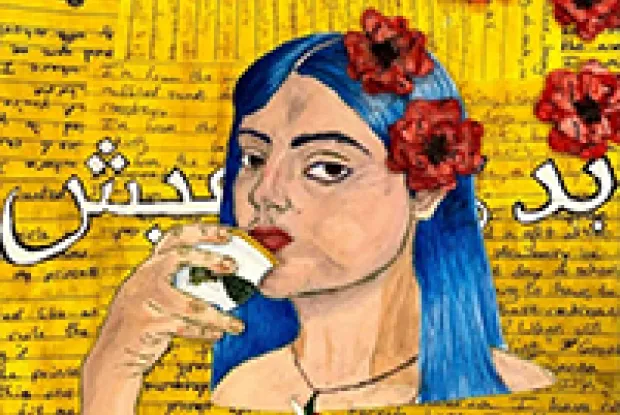
Beyond the Middle East Studies Program
Chloe Rose ’22, who is majoring in Middle East studies and minoring in Arabic, highlights a range of opportunities that students can pursue.
Helpful Links
- Central Zionist Archives
- Columbia University Libraries: Selected Middle East Reference Works
- Cornell University: Library Middle East & Islamic Studies Collection
- Library of Congress: African & Middle Eastern Reading Room
- MEMP: Middle East Microform Project
- MENALIB: Middle East Virtual Library
- New York University Library: Middle East Studies
- Pars Times: Middle East Resource Guide
- University of Chicago Library: Middle East Department
- University of Michigan Library: Near East Division
- University of Texas Map Collection
- Yale University Library: Near East Collection
- American University in Cairo: Middle East Studies Program
- Columbia University School of International and Public Affairs: The Middle East Institute
- Durham University: Middle East & Islamic Studies
- Harvard University: Center for Middle Eastern Studies
- Hebrew University of Jerusalem: The Harry S. Truman Institute for the Advancement of Peace
- Princeton University: Department of Near Eastern Studies
- Tel Aviv University: The Moshe Dayan Center for Middle Eastern and African Studies
- University of Arizona: Center for Middle Eastern Studies
- University of Chicago: Center for Middle Eastern Studies
- University of Exeter: Centre for Arab Gulf Studies
- University of California, Los Angeles: Center for Near Eastern Studies
- University of Haifa: The Jewish–Arab Center
- University of London: Centre of Islamic and Middle Eastern Law
- University of Pennsylvania: Middle East Center
- University of Texas: Department of Middle Eastern Studies
- University of Utah: Middle East Center
- University of Washington's Jackson School of International Studies: The Middle East Center
- Al Jazeera (in English)
- Al Arabiya (in English)
- IBA News (in English)
- American Institute for Maghrib Studies
- American Institute for Yemeni Studies
- The American Research Center in Egypt
- American Research Institute in Turkey
- Association for Israel Studies
- Association for Middle East Women's Studies
- Association for the Study of the Middle East and Africa
- The Begin–Sadat Center for Strategic Studies (BESA)
- Economic Research Forum for the Arab World, Turkey, and Iran, Cairo, Egypt
- Foundation for Iranian Studies
- Institute for Palestine Studies
- Israel/Palestine Center for Research and Information (IPCRI)
- Jerusalem Center for Public Affairs
- Middle East Economic Association
- Middle East Institute
- Middle East Forum
- The Middle East Media Research Institute (MEMRI)
- Middle East Studies Association (MESA)
- Oman Studies Centre for Documentation and Research on Oman and the Arabian Gulf
- SPME (Scholars for Peace in the Middle East)
- Washington Institute for Near East Policy
- Washington Kurdish Institute
- Al Bawaba
- Al–Hurriyet (in English)
- An–Nahar
- Arab Studies Journal
- As–Safir
- Dal Al–Hayat (in English)
- Haaretz
- International Journal of Middle East Studies
- Iran Nameh
- Israel Studies
- +972mag.com
- Jerusalem Post
- Journal of American Studies of Turkey
- Journal of Arabic Literature
- The Jerusalem Report
- Journal of Arabic and Islamic Studies
- Journal of Islamic Studies
- The Journal of Israeli History: Politics, Society, Culture
- Journal of Near Eastern Studies
- Journal of Palestinian Studies
- Kmt: A Modern Journal of Ancient Egypt
- Mamluck Studies Review
- MEED: Middle East Business Intelligence
- MELA Notes: The Journal of the Middle East Librarians Association
- MESA Bulletin
- The Middle East Journal
- Middle East Report
- The MIT Electronic Journal of Middle East Studies
- Rahavard Persian Journal (in Persian)
- Sudanic Africa: A Journal of Historical Sources
- Times of Israel
- Washington Report on Middle East Affairs
- Ynet News
Contact Middle East Studies
Hatfield Hall 102
Smith College
Northampton, MA 01063
Phone: 413-585-3510 Email: middleeaststudies@smith.edu
Administrative Coordinator: Lisa DeCarolis-Osepowicz
ldecarol@smith.edu
Individual appointments may be arranged directly with the faculty.
